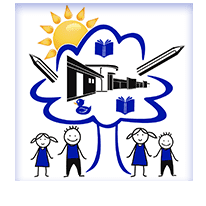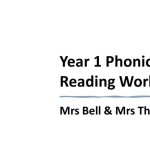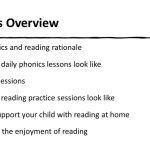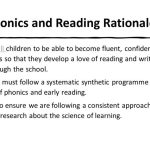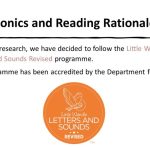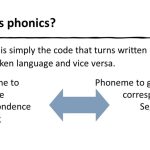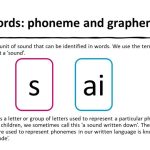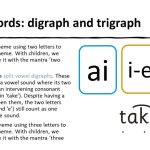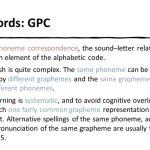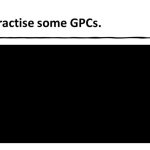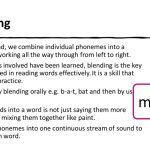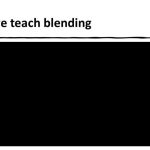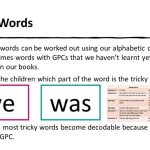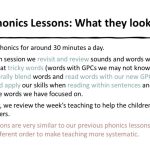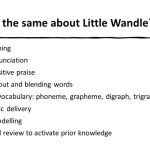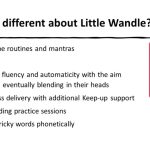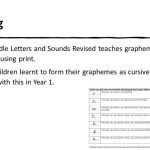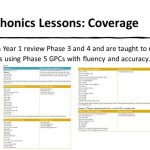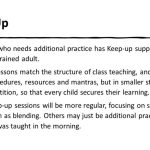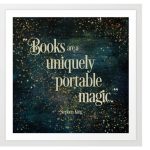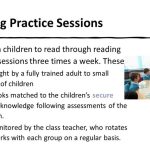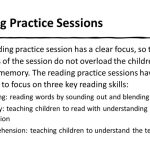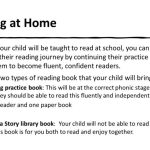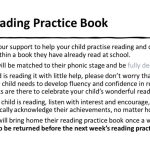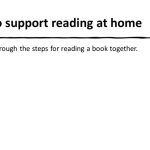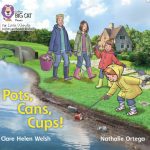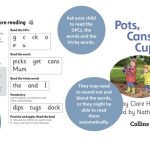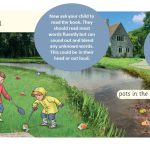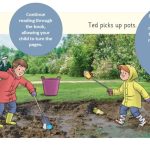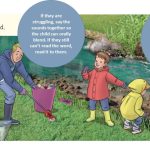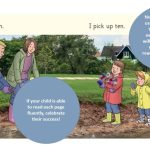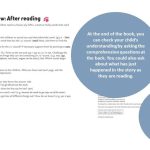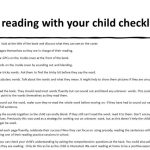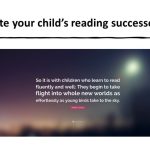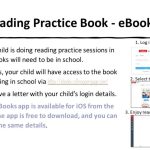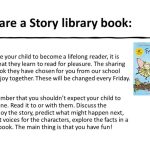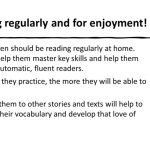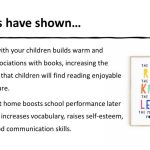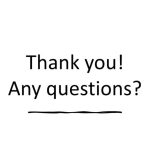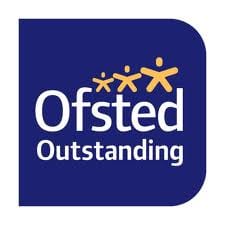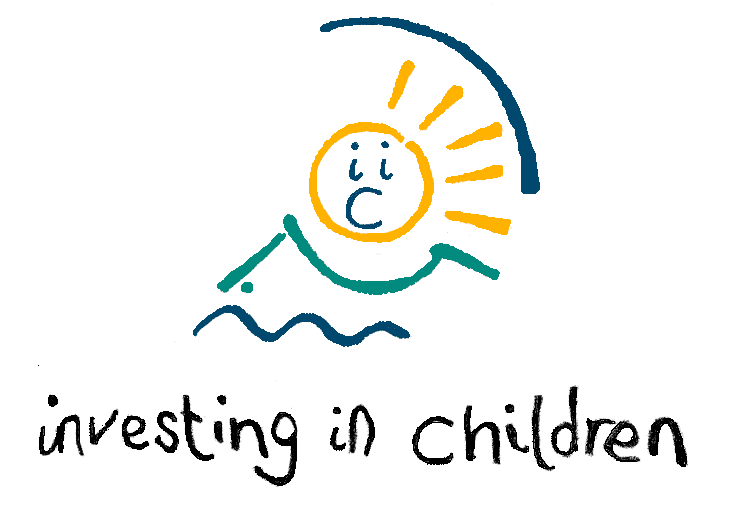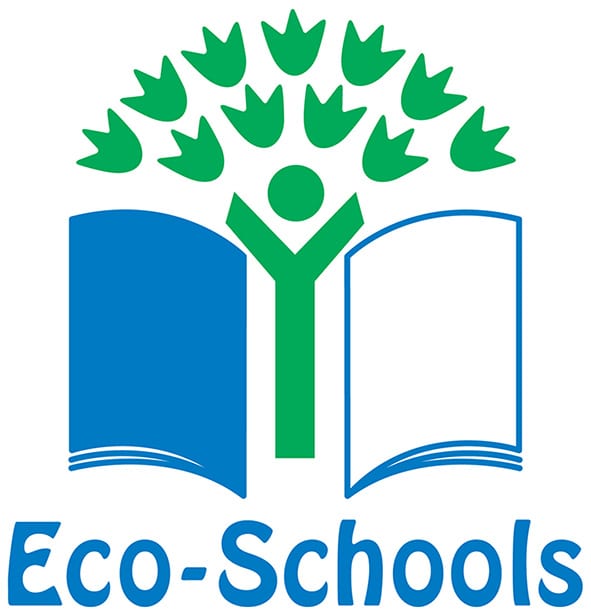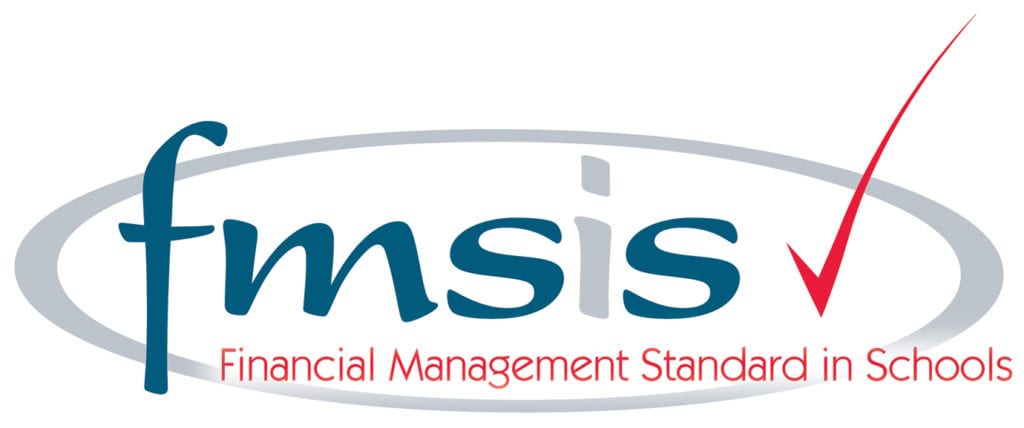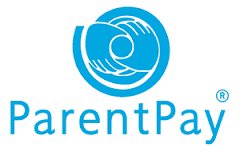“The more that you read, the more things you will know. The more that you learn, the more places you’ll go.” – Dr. Seuss
At Kirk Merrington Primary School we believe that being able to read and write are the vital skills that enable us to understand and express ourselves more effectively.
These skills open the door to learning. We passionately believe in helping children to develop not only the technical skills, but we aim to instil a love for reading and writing.
Phonics
In order for us to teach the skills of reading, children in Reception and Year One take part in daily phonics lessons. In Year 2, the children will complete Phase 5 will move onto identifying spelling patterns. At Kirk Merrington we follow Little Wandle Letters and Sounds – revised programme.
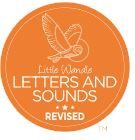 What is Little Wandle?
What is Little Wandle?
Little Wandle Letters and Sounds Revised is a complete systematic synthetic phonics programme (SSP) developed for schools by schools. Based on the original Letters and Sounds, but extensively revised to provide a complete teaching programme meeting all the expectations of the National Curriculum, Ofsted and preparing your children to go beyond the expectations of the Phonics Screening Check.
Supporting Videos
The resources (courtesy of Letters and Sounds) on this page will help you support your child with saying their sounds and writing their letters. There are also some useful videos so you can see how they are taught at school and feel confident about supporting their reading at home.
Intent
Phonics (reading and spelling)
At Kirk Merrington Primary School, we believe that all our children can become fluent readers and writers. This is why we teach reading through Little Wandle Letters and Sounds Revised, which is a systematic and synthetic phonics programme. We start teaching phonics in Reception and follow the Little Wandle Letters and Sounds Revised progression, which ensures children build on their growing knowledge of the alphabetic code, mastering phonics to read and spell as they move through school.
‘Little Wandle Letters and Sounds Revised’ is a government validated phonics scheme for the teaching and delivering of systematic phonics. Phonics is the building blocks that young children learn, to enable them to become fluent readers.
As a result, all our children are able to tackle any unfamiliar words as they read. At Kirk Merrington Primary School, we also model the application of the alphabetic code through phonics in shared reading and writing, both inside and outside of the phonics lesson and across the curriculum. We have a strong focus on language development for our children because we know that speaking and listening are crucial skills for reading and writing in all subjects.
Comprehension
At Kirk Merrington Primary School we value reading as a crucial life skill. By the time children leave us, they read confidently for meaning and regularly enjoy reading for pleasure. Our readers are equipped with the tools to tackle unfamiliar vocabulary. We encourage our children to see themselves as readers for both pleasure and purpose.
Because we believe teaching every child to read is so important, we have a Reading Leader who drives the early reading programme in our school. This person is highly skilled at teaching phonics and reading, and they monitor and support our reading team, so everyone teaches with fidelity to the Little Wandle Letters and Sounds Revised programme.
Implementation
Daily phonics lessons in Reception and Year 1
- We teach phonics for 30 minutes a day. In Reception, we build from 10-minute lessons, with additional daily oral blending games, to the full-length lesson as quickly as possible. Each Friday, we review the week’s teaching to help children become fluent readers.
- Children make a strong start in Reception: teaching begins in the 2nd full week of the Autumn term.
- We follow the Little Wandle Letters and Sounds Revised expectations of progress:
- Children in reception are taught to read and spell words using Phase 2 and 3 GPCs, and words with adjacent consonants (Phase 4) with fluency and accuracy.
- Children in Year 1 review Phase 3 and 4 and are taught to read and spell words using Phase 5 GPCs with fluency and accuracy.
Daily Keep-up lessons ensure every child learns to read
- Any child who needs additional practice has daily Keep-up support, taught by a fully trained adult. Keep-up lessons match the structure of class teaching, and use the same procedures, resources and mantras, but in smaller steps with more repetition, so that every child secures their learning.
- We timetable daily phonics lessons for any child in Year 2 or 3 who is not fully fluent at reading or has not passed the Phonics Screen Check. These children urgently need to catch up, so the gap between themselves and their peers does not widen. We use the Little Wandle Letters and Sounds Revised assessments to identify the gaps in their phonic knowledge and teach to these using the Keep-up resources – at pace.
- If any child in Year 3 to 6 has gaps in their phonic knowledge when reading or writing, we plan phonics ‘catch-up’ lessons to address specific reading/writing gaps.
Teaching reading: Reading practice sessions three times a week
- We teach children to read through reading practice sessions three times a week. These:
- are taught by a fully trained adult to small groups of approximately six children
- use books matched to the children’s secure phonic knowledge using the Little Wandle Letters and Sounds Revised assessments and book matching grids on pages 11-20 of ‘Application of phonics to reading‘
- are monitored by the class teacher, who rotates and works with each group on a regular basis.
- Each reading practice session has a clear focus, so that the demands of the session do not overload the children’s working memory. The reading practice sessions have been designed to focus on three key reading skills:
- decoding
- prosody: teaching children to read with understanding and expression
- comprehension: teaching children to understand the text.
- In Reception these sessions start in Week 4. Children who are not yet decoding have daily additional blending practice in small groups, so that they quickly learn to blend and can begin to read books.
- In Year 2 and 3, we continue to teach reading in their way for any children who still need to practise reading with decodable books.
Home Reading
- The decodable reading practice book is taken home to ensure success is shared with the family.
- Reading for pleasure books also go home for parents to share and read to children.
- We use the Little Wandle Letters and Sounds Revised parents‘ resources to engage our families and share information about phonics, the benefits of sharing books, how children learn to blend and other aspects of our provision, both online and through workshops.
Additional reading support for vulnerable children
- Children in Reception and Year 1 who are receiving additional phonics Keep-up sessions read their reading practice books to an adult daily.
Ensuring consistency and pace of progress
- Every teacher in our school has been trained to teach reading, so we have the same expectations of progress. We all use the same language, routines and resources to teach children to read so that we lower children’s cognitive load.
- Weekly content grids map each element of new learning to each day, week and term for the duration of the programme.
- Lesson templates, Prompt cards and How to Videos ensure teachers all have a consistent approach and structure for each lesson.
- The Reading Leader and SLT use the Audit and Prompt cards to regularly monitor and observe teaching; they use the summative data to identify children who need additional support and gaps in learning.
Continuing the Reading Journey beyond Phonics
Daily reading lessons Year 2- Year 6
We teach reading skills once a day in a dedicated reading lesson. Reading lessons focus on the comprehension reading skills. The children are exposed to a range of questions to enhance their understanding of texts. We carefully direct questions towards vocabulary, inference, summarising and predicting.
- We deliver three shared reading lessons a week whereby the children work in pairs and have a whole class discussion around their class text. The teacher will focus on a specific comprehension skill. We support the children’s understanding of comprehension skills using the Reading Dogs.
- We also deliver one comprehension lesson a week. The comprehension lesson allows the children to work independently and apply skills they have been working on in their shared reading. This may be to a more unfamiliar text.
- We also have a dedicated reading lesson whereby the children are encouraged to read their own reading book. The teacher will take this opportunity to promote ‘book talk’ The children will discuss elements of their book they are enjoying and will recommend books to others. The teacher may also hear individual children read.
Intervention
Children who are not yet meeting the required expectation for their year group with reading, may receive intervention in the form of Guided Reading.
- Guided Reading will be planned for these children to take place three times a week.
- Children are put into smaller groups so that reading can be assessed accurately, and more targeted, directed questioning can take place.
- Children are exposed to both fiction and non-fiction texts.
- In years 3 – 6, children use both Rigby Navigator and Read and Respond.
- Children in year 2 and 3 may continue on their journey with Little Wandle until they are at the expected standard.
Home reading
- Children continue on from year 1, receiving a home reading book.
- Reading books have been carefully selected and chosen to be recommended for the children to read age appropriate texts.
- In each class, we expect the children to read up to 6 ‘recommended reads’ across the year. These include classics, award winners, poetry and non-fiction. These books are promoted through a weekly ‘book talk’ lesson.
- There is also a wider selection of books that the children can choose from. These too have been carefully selected as age appropriate.
Ensuring reading for pleasure
‘Reading for pleasure is the single most important indicator of a child’s success.‘ (OECD 2002)
‘The will influences the skill and vice versa.’ (OECD 2010)
We value reading for pleasure highly and work hard as a school to grow our Reading for Pleasure pedagogy.
- We read to children every day with enthusiasm. We choose these books carefully as we want children to experience a wide range of books, including books that reflect the children at Kirk Merrington Primary School and our local community as well as books that open windows into other worlds and cultures.
- Every classroom has an inviting book corner that encourages a love for reading. We curate these books and talk about them to entice children to read a wide range of books.
- In Reception, children have access to the reading corner every day in their free flow time and the books are continually refreshed.
- Children from Reception onwards have a home reading record. The parent/carer records comments to share with the adults in school and the adults will write in this on a regular basis to ensure communication between home and school.
- As the children progress through the school, they are encouraged to write their own comments and keep a list of the books/authors that they have read.
- Children receive ‘dojo points’ and stickers when they have read three times at home. After five weeks of reading three times per week, the children receive a prize.
- Children across the school have regular opportunities to engage with a wide range of Reading for Pleasure events books fairs, author visits and workshops, national events etc.
Impact
Assessment in Phonics
Assessment is used to monitor progress and to identify any child need additional support as soon as they need it.
- Assessment for learning is used:
- daily within class to identify children needing Keep-up support
- weekly in the Review lesson to assess gaps, address these immediately and secure fluency of GPCs, words and spellings
- Summative assessment is used:
- every six weeks to assess progress, to identify gaps in learning that need to be addressed, to identify any children needing additional support and to plan the Keep-up support that they need.
- by SLT scrutinised through the Little Wandle Letters and Sounds Revised assessment tracker, to narrow attainment gaps between different groups of children and so that any additional support for teachers can be put into place.
Statutory assessment
- Children in Year 1 sit the Phonics Screening Check. Any child not passing the check re-sits it in Year 2.
Recommended phonic websites
Please also take a look at these useful websites that will allow you to support your child with their phonics skills at home:
- Parent Support for Little Wandle
- Link to E-reader Log on
- Collins Ebooks
Useful Links
Assessment of reading beyond Phonics
Assessment for learning is used:
- Daily within class reading lessons
Summative assessment is used:
- every term, using NFER reading comprehension tests to assess progress, to identify gaps in learning that need to be addressed, to identify any children needing additional support and to plan the support that they need.
Reading trackers are also scrutinised by the SLT to narrow attainment gaps between different groups of children and so that any additional support for teachers can be put into place
Reading Long Term Plan
Reading Progression
School Reading List
If you are looking for books to buy for your children here are some ideas.
- Reception – School Reading List
- Year 1 – School Reading List
- Year 2 – School Reading List
- Year 3 – School Reading List
- Year 4 – School Reading List
- Year 5 – School Reading List
- Year 6 – School Reading List
